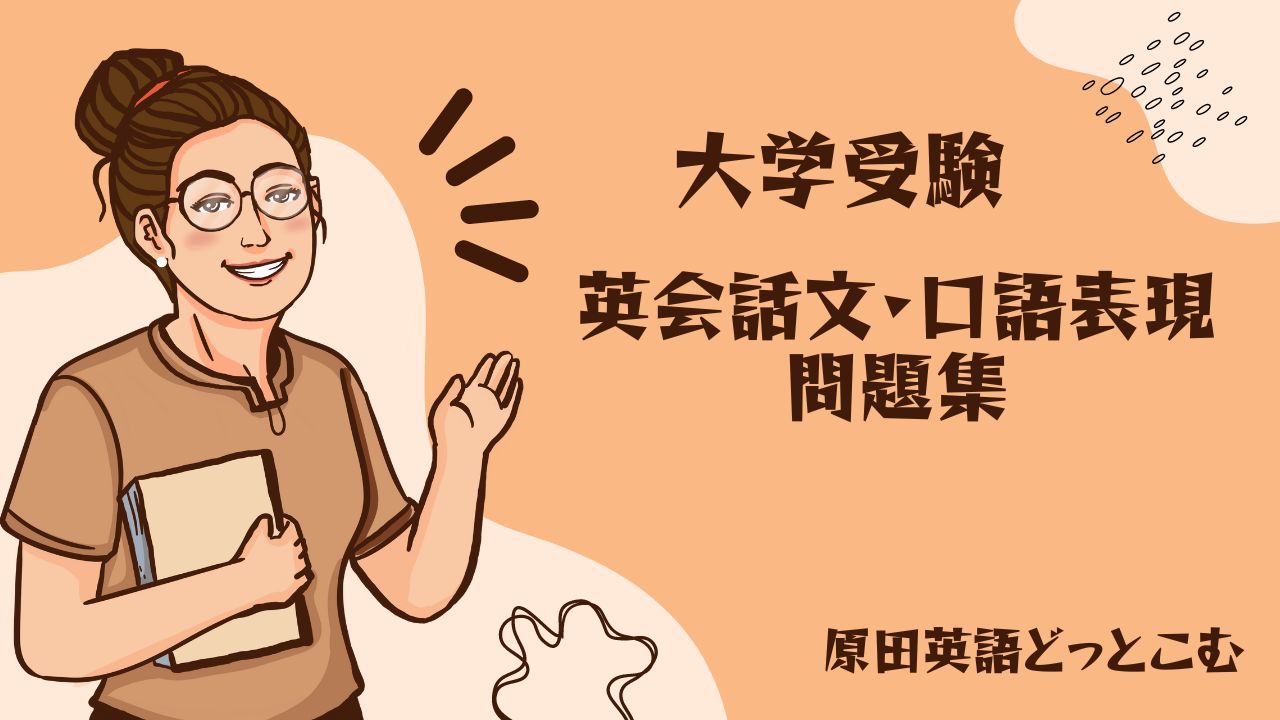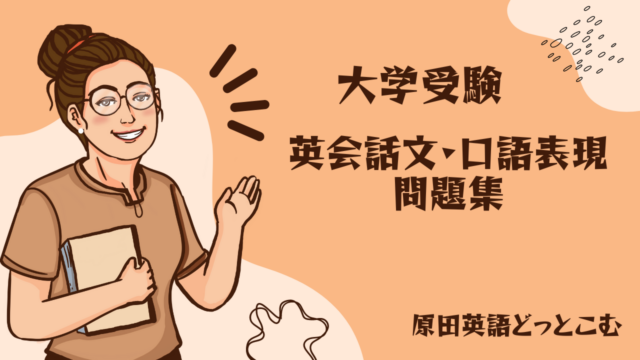127. 【早稲田大学(文)2024】
次の会話の(1)~(7)の空欄に入れるのに最も適切なものを(a)~(m)の中から一つずつ選びなさい。
Matt: Good heavens! Are you a ghost from the world beyond?
Ghost: Indeed, I am.
Matt: And what, pray tell, are you doing out at this late hour?
Ghost: You must agree that it is a fine night for a stroll. Isn’t that why you’ve wandered out here?
Matt: I’m searching for some ( 1 ) with which to contemplate the nature of existence.
Ghost: In that case, please don’t let me get in your way. I shall retire to the church.
Matt: Well, come to ( 2 ), I could benefit from your insights. Stay with me a while.
Ghost: As you wish. Now, tell me, what are your views on fate?
Matt: It’s all this talk of fate, of destiny, of the ( 3 ) and their supposed influence over our future.
Ghost: Nonsense, all of it! It is the ever-changing combination of accidental circumstances and the fickle operation of free will which determines one’s future – nothing more.
Matt: And am I simply to ( 4 ) for it? Or have you some conclusive evidence?
Ghost: Why, I’m a ghost, am I not? I possess supernatural understanding of a wide variety of things.
Matt: Prove it.
Ghost: Well, I ( 5 ) to know that you will live to be ninety-eight years old. You have no choice.
Matt: You’re contradicting yourself! Then it’s just as I feared: fate ( 6 ) over our future.
Ghost: You may be right, ( 7 ).
(a) after all
(b) answer
(c) astrology
(d) before long
(e) defines
(f) give my assent
(g) happen
(h) presides
(i) remember it
(j) solitude
(k) stars
(l) take your word
(m) think of it
解答:
(1) (j) solitude
(2) (m) think of it
(3) (k) stars
(4) (l) take your word
(5) (g) happen
(6) (h) presides
(7) (a) after all
解説:
(1) Mattが存在の本質を熟考するための孤独(solitude)を求めていることが文脈から明らかです。
(2) “come to think of it”は「よく考えてみると」という意味の慣用表現です。
(3) 運命や星(stars)の影響について言及されています。
(4) Ghostの言葉をそのまま受け入れる(take your word for it)のかどうかをMattが尋ねています。
(5) “happen to”は「たまたま~する」という意味の慣用表現です。
(6) 運命(fate)が未来を支配している(preside over)とMattは恐れています。
(7) “after all”は「結局のところ」という意味の慣用表現で、Ghostの考えの変化を示唆しています。
日本語訳:
Matt: なんてこった!あなたは異界からの幽霊ですか?
Ghost: そのとおりだ。
Matt: ところで、こんな遅い時間に何をしているんですか?
Ghost: 散歩するには良い夜だと思わないかね。それであなたもここに出てきたのではないのかな?
Matt: 私は存在の本質を熟考するための孤独を求めているのです。
Ghost: それならば、邪魔しないでくれ。私は教会に引き下がろう。
Matt: そう言えば、あなたの洞察から得るものがあるかもしれません。しばらく一緒にいてください。
Ghost: 望むところだ。さて、運命についてどう考えているのかね?
Matt: 運命や宿命、星々とその未来への影響力についての話ばかりです。
Ghost: それは全くのナンセンスだ!偶然の状況と気まぐれな自由意志の組み合わせが未来を決定するのであって、それ以上のものではない。
Matt: ではそれを鵜呑みにしろというのですか?それとも決定的な証拠でもあるのですか?
Ghost: 私は幽霊だからね。あらゆることについて超自然的な理解力を持っているのだ。
Matt: 証明してみてくれ。
Ghost: そうだな、君が98歳まで生きることを知っているよ。君に選択の余地はない。
Matt: 自分の言っていることが矛盾しているじゃないか!やはり私が恐れていたとおりだ。運命が私たちの未来を支配しているんだ。
Ghost: そうかもしれないな、結局のところ。
【come to think of it】
「よく考えてみると」または「そう言えば」
⇒このフレーズは、何かを思い出したり、新しい視点に気づいたりしたときに使われます。過去の出来事や情報を振り返って、新たな洞察を得た状況を表現しています。
<例文>
“I didn’t enjoy the movie very much, but come to think of it, the acting was quite good.”(私はその映画をあまり楽しめなかったが、よく考えてみると、演技はかなり良かった。)
【take your word for it】
「あなたの言葉を信じます」または「あなたの言うことを信用します」
⇒このフレーズは、相手の発言を疑うことなく、そのまま受け入れることを表現します。自分自身で確認することなく、相手の言葉を信頼することを示しています。
<例文>
“I haven’t tried the new restaurant myself, but I’ll take your word for it that the food is delicious.”(私はまだその新しいレストランを試していないが、料理が美味しいというあなたの言葉を信じます。)



